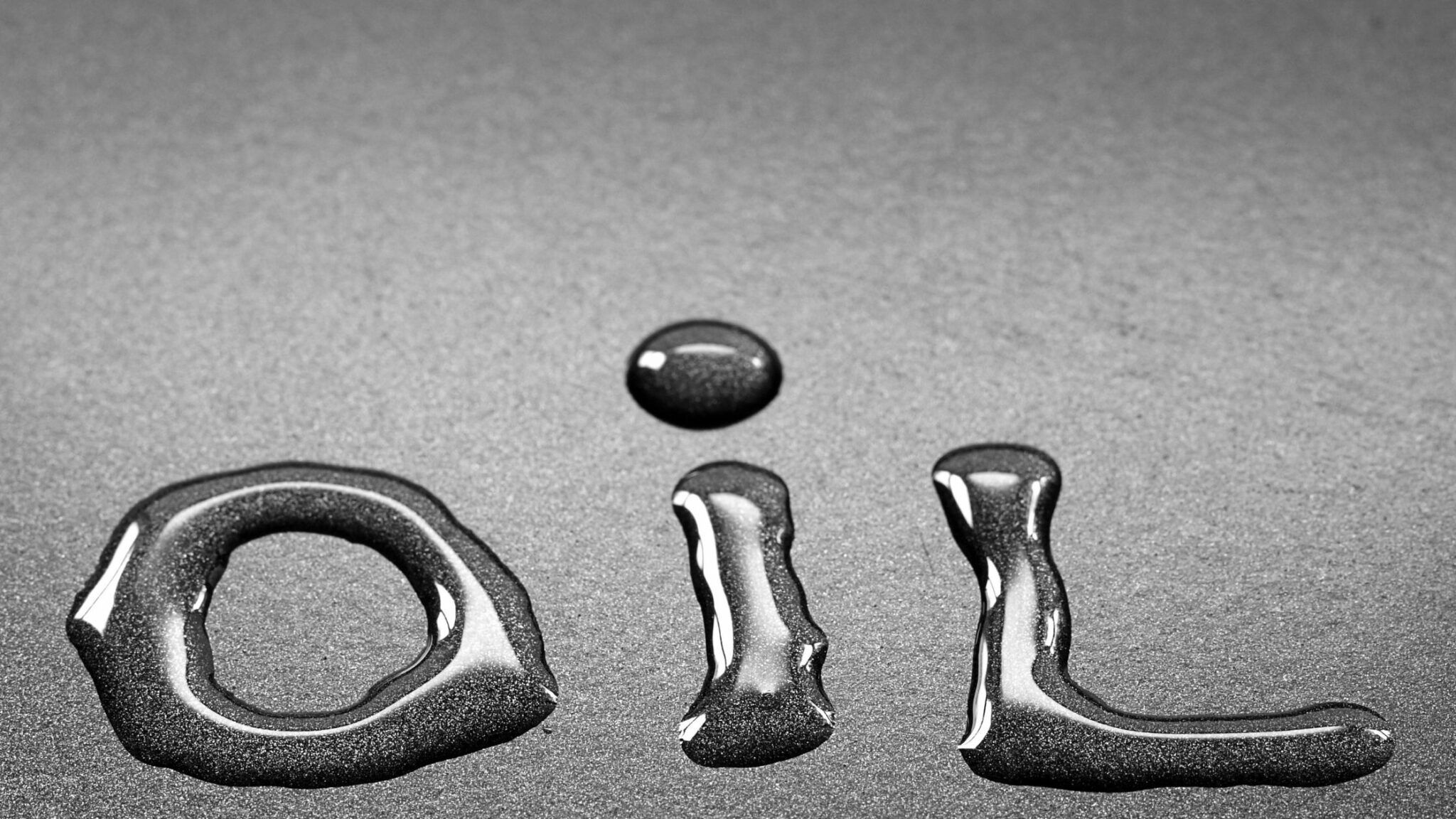Skin Oils Cause More Harm than Benefit

Oils for skin and hair care have long been in vogue. Almost every cosmetic brand has one in its range. Body oils are particularly popular in winter, because they give the skin a warm, cozy hygge feeling. But not all of them are good for the skin.
It is impossible to imagine wellness massages without oils, they support the pampering aspect. However, there are differences. In the field of cosmetic applications, a distinction is made between fatty, so-called base or carrier oils, and essential oils. Good base oils are natural, cold-pressed vegetable oils, for example from olives. They are not only a popular cream base, but can also be used pure. Since their composition is similar to that of natural skin oils, they are considered skin-friendly. The situation is different with essential oils. These are water vapor volatile, only slightly oily extracts from plants. They are primarily used for their aroma. Everyone knows lavender oil.
Fatty Petroleum
What distinguishes high-quality natural oils? They need neither emulsifiers nor preservatives or any chemical additives. This is guaranteed with native oils in organic quality. With ready-made blends, you should take a closer look at the ingredients. Inexpensive products often contain mineral oil (INCI: Paraffinum Liquidum), a fat derived from petroleum. They are declared as Liquid petrolatum, Paraffin oil, Petrolatum liquid, Petroleum oil, White mineral oil and White oil. Vaseline (petrolatum) belongs to the same family, only its texture is not liquid but waxy.
Petroleum is a popular raw material for inexpensive mass production – cheap, easy to process. Unlike vegetable oils, petroleum products also have a long shelf life and consistent quality. Vegetable oils are sensitive. They react with light, air and heat, can quickly become rancid, and the quality can vary.
The mineral oil used for cosmetics comes from petroleum, which in turn develops from the remains of plankton and algae and is exposed to high pressure and temperatures in the earth’s crust. When it is extracted from the earth for use in skin care products or medicines, it is purified to a particularly high degree so that not much of the original material remains. However, vegetable oils are also purified before they are applied to the skin.
If you ask your body, petroleum is a foreign substance for it, which forms a kind of film on the skin and immediately seals the surface. In this way, water loss is stopped and the skin feels nice and soft for the time being. “At first the skin looks good, after all the dryness wrinkles disappear, but various cellular processes do run less well in the long run,” confirms Dr. Jeske Ultee, research physician in cosmetic dermatology from Rotterdam. “Ultimately, this means your skin can protect itself less well and you get into a vicious circle: the skin dries out quickly if you haven’t applied a cream. So that means you have to keep applying cream.”
Fake news á la „Goldfinger
You often hear or read that mineral oils cause acne and blackheads and that the skin underneath cannot breathe. This has been disproved in several studies. The sebum simply flows off without clogging the pores. It is also false that the sealing effect prevents the skin from absorbing oxygen. The skin does not breathe, as is repeatedly claimed. It receives the majority of oxygen through the blood and not through the outside air. Only the uppermost 0.4 mm of the human skin are supplied with oxygen from the outside. It is therefore also nonsense that people can suffocate if skin respiration is prevented á la “Goldfinger” in the James Bond movie.
Also wrong is the assumption that vegetable oils are much safer and better for the skin. “Pure vegetable oils cause the skin to dry out,” says Prof. Dr. Dr. Erhardt Proksch, head of the Barrier Research Group, Kiel University Skin Clinic. Dr. Ultee goes one step further. She says, “There are quite a few vegetable oils with a worse safety profile than mineral oils, some examples are mentioned on the website ‘essentialoils’. Vegetable oils can also contain harmful substances such as 3-chloro-1,2-propanediol: This substance is carcinogenic and is found mainly in oils that are actually ‘unprocessed’ (not purified oils). In addition, the authenticity of vegetable oils has often been questioned in the past: Poorly purified mineral oil was added to a vegetable oil by some suppliers to make it cheap.“
The conclusion from this is that purified mineral oils, while not toxic, are not really cosmetic. The thicker the consistency of a product with mineral oil, the more unpleasant the feeling on the skin. But thin textures are less likely to moisturize the skin, which again is the only benefit of this oil. Another disadvantage is the “over-hydration” of the skin described by Dr. Ultee, especially when the skin is rather dry.
Mineral oils also do not contain substances that are beneficial to the skin, such as antioxidants or skin-soothing substances. A moisturizer that contains only mineral oils is therefore missing an important component that makes up a valuable skin care product. The reason why dermatologists like to prescribe mineral oils is that they prevent irritation caused by external stimuli and can help to regenerate the skin barrier. An additional advantage is that the allergy risk is low. That is why mineral oils are often used for the treatment of eczema.
Oils damage the skin’s barrier
If you ask scientists, vegetable oils don’t really come off well either. “Apart from a refatting effect, no other effect has been scientifically proven with the use of skin oils,” says Hamburg cosmetologist Dr. Sabine Guett. “Oils contain many unsaturated fatty acids. But our skin barrier is skinned up like butter, relatively little permeable. That’s why people used to apply butter to wounds. If you put oil on butter, you get margarine, and it’s permeable. In cosmetics, oils make the barrier more permeable. Especially for sensitive skin with a non-intact surface, oils are counterproductive because the barrier becomes more permeable and the skin’s water loss increases.”
If you still want to use a skin care oil, you should take a very close look at your skin beforehand. If it is rather dry, refrain from using a high oil content in cream or serum. Also, if you sweat a lot, during intense sports for example, the use would be counterproductive. Sweat cannot flow off well under the oil and fluid-filled blisters can form on the skin. Such a rash is also called heat pimple (Miliaria rubra). Oils are taboo for oily skin and a tendency to acne.
Using oils as permanent care is not a good deal for the skin. Because in addition to fat, it also needs substances that bind moisture. What is often recommended, applying oil to still damp skin, also makes little sense. It does not mix with the moisture and only takes longer to be absorbed.
A very clear statement comes from Prof. Proksch: “There are only few and no clean studies in which products containing natural oils have been compared with other skin care products. Convincing data that natural oils are beneficial as an ingredient in skin care products, for example in atopic dermatitis, are lacking. It is probably more appropriate to use targeted active extracts from oils that contain desirable ingredients and suitable lipid compositions. Linoleic acid extracted from vegetable oils, for example, is beneficial to the skin. There is still much research to be done on which ingredients are effective, especially in cases of impaired barrier function.”

CultureAndCream Author from Munich
To travel during my profession as a beauty journalist was never enough for my. Also my six month on a world trip didn’t do it. It always attracts me to other cities, foreign countries, on roadtrips and places I don’t know yet. But I am not only interested in “culture” and “cream”, I am also fascinated by people who have stories to tell . Such unique experiences I want to share with you.


